Interview: USA's Dawn Olmstead On 'Mr. Robot', Shared Universe Shows, And Neil Gaiman Series [TCA 2016]
USA presented a panel called "Decoding Season_2.0 With the Women of Mr. Robot" for the Television Critics Association, featuring stars Carly Chaikin, Portia Doubleday, Grace Gummer, and Stephanie Corneliussen. Creator and showrunner Sam Esmail was busy editing the show, so representing the behind the scenes of the show was Dawn Olmstead, Executive Vice President, Development, Universal Cable Productions and Wilshire Studios.
We had the chance to meet with Olmstead after the Mr. Robot panel. As EVP of Development, Olmstead took the show to pilot and series and she's also developed UCP's current and upcoming slate of shows including 12 Monkeys, Shooter, Falling Water, and recently announced series based on Neil Gaiman's Interworld, Dark Horse Comics' Umbrella Academy, Boom Studio's The Woods and Top Cow's Bushido. Olmstead took us inside Mr. Robot and how UCP develops series for cable.
Your role is Executive Vice President of Development. Once a show like Mr. Robot launches, do you stay hands on?
Yeah. We are very hands on in season one and formulating season two. Then I personally read every script and watch every cut but I don't micromanage the way you might do certainly on a pilot and in season one. We sort of gently hand over our shows to Current [the day-to-day budget/production department] but we're part of every conversation. We're in every meeting. We are the foundation pretty much with the relationship with usually the creator, whether it's Sam or whoever else, because we're the first people that they're with. So it's a very strong relationship and it's very trusted. Also whenever there is a bump in the road, a lot of times we'll step in because there's a trust there that we're all on the same team.
Has that happened on season two, that they needed you for backup?
Not at all, no. I texted Sam last night because I saw the next cut. Normally I'll just validate maybe some notes that he might be hearing but also usually praising because his stuff is so good. Like, "Don't take the stuffing out of this." Or "I heard a note about this and I kind of agree but I love it."
And you don't edit them because the episodes are 90 minutes long.
Yeah. I mean, not all of them are. That's what's so great about television right now. I was talking to somebody and they were like, "No one would tell an author that each chapter has to be 45 pages. The chapter gets to be what the chapter gets to be." And no reader is saying, "Ugh, that was a long chapter." Every episode that was longer than normal length was because that story needed to be, especially this season where we're really branching out to the ensemble. The reason why we can have those girls up there today is because they all have very fleshed out stories that are complicated and have ambition and drive. They are all taking on something bigger then themselves and you need time. He is not just giving the audience what they want which is Elliot, Elliot, Elliot. He is saying, "This girl over here has got a really important piece of this puzzle and her own story. I'm not only going to tell you the plot-driven part of that story. We're going to tell you who she is as a character." I love what he's doing.
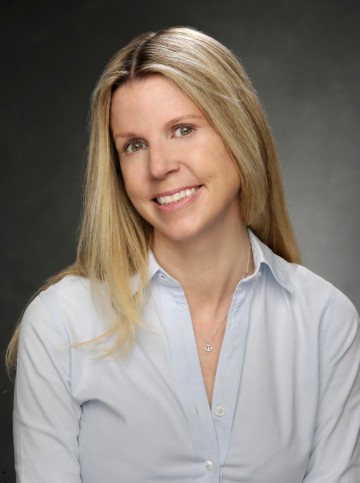 I wouldn't say we only want Elliot, Elliot, Elliot.
I wouldn't say we only want Elliot, Elliot, Elliot.
No, but some people.
Did Sam use a Forrest Gump effect to make President Obama talk about fsociety?
[Laughs] Well, President Obama didn't film it for us, so I'll tell you that. I think we used some looping and stuff like that. It was great. When I first saw it, I was like, "Wait, did I miss a memo. Is Obama a fan and said, "I'll do anything?"
Even if he was a fan, he wouldn't have time to record it.
No, especially in today's events.
Is this season even more in Elliot's head than the first was?
I don't think so. When we heard the whole pitch out for season two, I think we were all amazed at the twists and turns of the storytelling that we were awed by in season one, we're going to be awed by in season two. I think it's about the same. I think we just know more about his head in season two and how it works so we're aware. I think there was a lot more guessing in season one of like what's wrong with him? What does he have? What is he taking those pills for? Now we know all his ailments and the demons he has to fight in order to be whole, so we're aware of it.
What was the decision to allow swearing, even if it's bleeped, for unfiltered dialogue?
With this show in particular and certainly for us as a studio and the shows that we're doing, there was no decision or agenda. That is the way the scripts were written, because they were authentic to the characters and especially this world under this extreme pressure and these fringe characters who are the disenfranchised. The authenticity of Sam initially conceived of this as a movie with no barriers. Movies, at the end of the day they'll tell you what the rating is but no one's saying, "You can't say fuck" in a movie. He came at it, this is the way the characters talked and was real and authentic.
So every time we delivered a cut to the network and to the different people that have to monitor it, this is what felt real. I think everybody pushed their boundaries inside the network in a way that felt very supportive of like, "Let's try. Let's try to keep it as authentic." We are so precious with it. We love it and it feel real so if it ever feels gratuitous, we don't need to see that. We don't need to hear that. Grace was saying, "My character doesn't swear like that" but in the FBI you'd believe that they don't as much. They may internally but there's a much more buttoned up world. It's a much more conservative world. But you'd surely believe that Darlene is F-bombing all the time. Elliot doesn't curse as much. It's authentic to what's going on and who those characters are and they're saying what they need to say that's believable.
So we fight for whatever's believable and then other people tell us what we're allowed to do or not to do. They all want to push the boundaries of television and cable and do what we can. So the discussions are: is there a path that can lead us to be more authentic? Can we ask the question? Can we push a little further? What can we do to keep it authentic? Then there are times where you have to drop the language. Well, is there a way to keep the language on iTunes? I think we're always trying to keep it authentic.
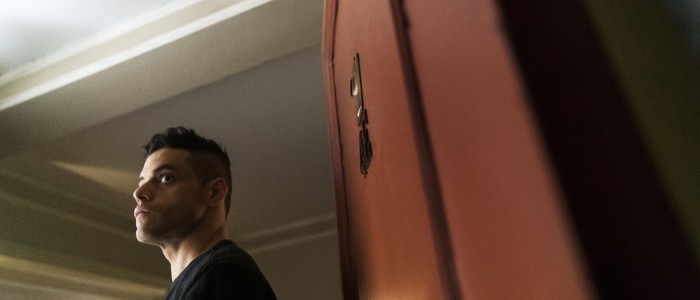 It is interesting that the c-word can go unbleeped but the f-word can't.
It is interesting that the c-word can go unbleeped but the f-word can't.
Yes. I did Prison Break and the fact that we'd get these crazy notes about different things we were allowed, but we had a main character named T-Bag who never was flagged, was a learning lesson. Just keep pushing. You don't know what these groups that tell you what to do are going to be sensitive to or not. We just try to do what we think is right for the show and try to push as much as we can until we either win a fight or lose a fight.
You would have seen that signature low angle shot with the character framed in the corner on the pilot. Were there any conversations about framing the show that way?
No. One of the things that we really fought for was to get the money, the time and to shoot in New York. What happens when you pick up a pilot, you have a script and we knew not only Sam's work but we knew Neils Oplev, who directed the pilot who had done the original Girl with the Dragon Tattoo which we were all really fans of. When they present, they start presenting, even when they want to come in and be the director, they will do storyboards, mood boards and you'll start seeing the references that we pull from other movies. I think that there was a visual style that was percolating that we all got on board with from not only the design boards but then we do what's called a design presentation for the network where we say that this is what we want.
Both on Mr. Robot and Falling Water, there's a desire to have a really strong cinematic auteur vision because it's a visual medium. This is not a novel. This is not a book. It's not a news show. We want to wow people as much with the words and the story as the art form.
Did Sam wanting to direct every episode this season give you any pause just as far as you also need him to run the show?
It gave us a challenge. How are we going to schedule this so that actually Sam could physically do this and not collapse on us? So we gave him breaks but I think we learned really early on that Sam delivers what he says he can deliver. He's just a maverick and an auteur. He has not disappointed us on any step of the way. I think had we had bumps in the road in season one, we wouldn't have been able to get to this decision, but there was such a trust built in season one, the attitude was more: if anybody can do it, Sam can. So how do we, as professionals of a giant corporation, put things in place in case things go wrong or he needs [them]?
I think there were gaps in there that were planned but that was going so well, in that gap that he was supposed to rest, he did the VR experience. Now he's editing which is why he's not here. Instead of editing on the way, we did sort of an old school way like a feature. He's editing now. But Sam has such a vision and control of knowing what he wants to do, he would've been on set any day anyway. He's not a guy who's with the writers in the room all the time. Season one, if he wasn't directing, he was there. So the physical time that he needed to do is sort of the same. I'm not saying we would do that with anyone but for sure, I think everybody wanted to try to make this work. We wrapped. It worked.
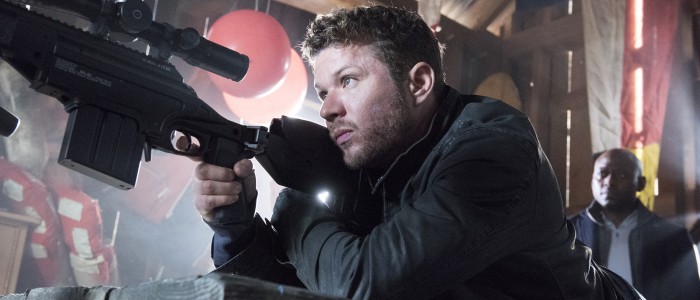 You have great roles for women on all the USA shows. Are you looking to increase the number of female showrunners or directors of episodes and pilots?
You have great roles for women on all the USA shows. Are you looking to increase the number of female showrunners or directors of episodes and pilots?
Absolutely. I mean, I am a woman. I'm not a believer in the argument of, "We definitely have that agenda but we're just trying to find the best." I believe that there are great female directors out there. Season one [of Mr. Robot] had three. There were only nine episodes. Sam was going to do a few of them and three of the other directors were female. There's no female directors [this year] because Sam did them all, but that is an agenda on all of our shows, to make sure we're seeing all the best that's out there and giving them the platforms they deserve in every department. Not just directing or writing. There's great writers on this show that are female too but a lot of our department heads on Mr. Robot are female. Look at the production designer on Mr. Robot [Anastasia White] which is one of the best designed shows on television.
I'm looking forward to seeing Shooter and I'm okay waiting for it to air out of sensitivity. What was the decision to make that delay and if more unfortunate things happen, will you eventually have to air it regardless?
It was a terrible thing that happened in Dallas. I think that there was just a sympathy and an empathy, not only for the victims but for what the world was feeling, what we were feeling. We're individuals. We get affected and I think that we just wanted to take a pause at that particular moment and look at it, be the most sensitive that we could be, even though we had spent all this money already putting billboards up.
We love the show. It was about a war hero who is wrongly accused. It really deserves to be on television. Right now, there's a meeting about exact dates but for us, the sooner we can get it on the air the better. Who knows what's going to happen in the world? But I think we're always going to be sensitive to what's happening in the world. It's getting on the air because it is good and it's a veteran story that really deserves to be told. We look at everything today trying to be sensitive for ourselves. So everything is through that lens. There was stuff that happened last year on Mr. Robot where pulled an episode [for a week]. We're trying to be human beings while we do our job.
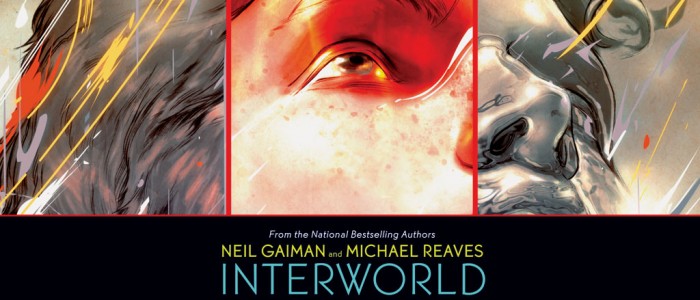 Do you have access to other Universal catalog titles if you want to develop more shows like 12 Monkeys?
Do you have access to other Universal catalog titles if you want to develop more shows like 12 Monkeys?
We don't have free reign but I think there's a great library that, whenever we can, we try to mine. We have a couple announcements that are coming out that I can't talk about yet but that are big shows that will tap into some of the Universal library, one in particular.
Names we'll recognize?
Names we'll recognize. And it changes, because the world changes and what we want to watch changes, but we don't just lock it up. We say, "Is there a great filmmaker or writer who wants to tell that story?" If there is, and a lot of times we'll internally try to break it to entice a great writer. Yeah, Universal has a great library that goes back to the 1920s. I think now more than ever, every feature studio, whether it's Disney, it's not like the feature world is saying, "This only can be in the feature world." I think people are trying to cross-pollinate like what Marvel and DC does so well. We look for opportunities like that too to say, "What is currently happening?" It doesn't have to be old movies. "What's currently happening and is there part of that universe that we can [portray]?"
We've had that conversation with all different franchises that are either in theaters or about to come out in theaters or were just in theaters. We look at all the Universal films, is there a television play that can elevate both worlds? That we can have an elevated television show that doesn't hurt the feature entity? We all talk so there's a lot of conversations that happen between features and TV with all the execs. We call and say, "What are you doing? We had an idea for this? Does it step on [yours] or can it help promote?" There's a thing called symphony inside our company.
Or we call it shared universe.
Yeah, shared universes. I think you're going to see a lot more of that. Big filmmakers are not so protective anymore. They see the opportunities. They love the opportunities. They love television now. They'll come right from the get go and you're like, "All right, get your movie out first and then let's talk about that." I think the world is opening up so I think you're going to see more and more not only library stuff but new stuff with Universal.
You announced some comic book series at Comic-Con, including the Neil Gaiman Interworld. Starz is doing American Gods too so why do you think now is the time that television caught up to Neil Gaiman?
I think storytellers have caught up to him that help him adapt his stuff. I think world building has caught up to him in television. So much of his stuff is so inventive and creative. I think now the scale and scope of television can actually really be benefited by projects like Interworld. I think also YA. It's in that world. There are a lot more networks who have a strong desire. It used to be only a couple places. I think we're going to do a lot more at Syfy, but you see Netflix, Amazon, they all see what's happening in the feature world with YA and they want to do a lot more. It's not just going to be basic cable. It's going to be a lot more premium stuff happen.
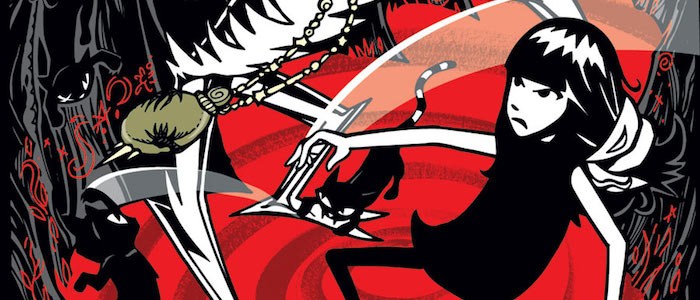 Umbrella Academy is Dark Horse, The Woods is Boom Studios and Bushido is Top Cow. Those are publishers who haven't had as much in the adaptation world as Marvel and DC. What do you see as the potential for them?
Umbrella Academy is Dark Horse, The Woods is Boom Studios and Bushido is Top Cow. Those are publishers who haven't had as much in the adaptation world as Marvel and DC. What do you see as the potential for them?
I think a lot of them work with really unique voices, like Gerard [Way] doing Umbrella Academy. I flew out Gerard to try to convince him to not sell it again to features, that this is a graphic novel with many chapters and many volumes. It belongs on television. You don't want to take that whole universe and boil it down to two hours. I think there are such unique voices in some of these smaller imprints because they can afford to. They're more boutique and so they have boutique voices.
The Woods is such an unusual story. One of our executives, Kate Fenske, found that one at Comic-Con and called me like, "You're going to love this one! It's a high school that winds up on another planet!" I think they are just able to tap into these younger or more outsider voices that aren't immediately pulled into the DC or Marvel universe, just like great voices always come from Sundance every year. I think these smaller imprints sometimes have these really fresh takes and they take more chances. There's not a more global corporation behind them that's trying to feed a machine, so we just find a lot of really unique stories in there. Some of them we can't get our hands on.
I'm dying to get my hands on Emily the Strange. I've talked to the writer a couple of times. IDW we do some stuff with too. A lot of times we go to them and say, "Look at our slate and you can see we're big genre fans." So we have just generals with them and say, "Look at what kinds of stuff we're looking for." A lot of times they'll be like, "You know what? Now that you've said that, we have this one that we weren't going to talk about but I'm going to send you it." We just sold Concrete. Concrete is a Dark Horse property that Zak Penn, who's doing Ready Player One with [Steven] Spielberg, we just sold to WGN and it is about a concrete man, this existential superhero. It's a graphic novel, comic book writer's comic book. It is up there in their minds with Watchmen. It breaks all forms. It's contemplative, it's soul searching, it's lonely.
Is it a pilot order or straight to series?
We didn't have a script on that so we took it out mainly because we didn't want to wait. We had very limited time with Zak because he's off with Spielberg right now doing Ready Player One. Matt Cherniss who runs WGN has the original artwork from Concrete in his office. So there were multiple bidders but he gave it to him because he's such a fanboy of the material and he really knew and understood Zak is such a fan. When it was in the feature world, Bill Murray was attached to be the voice. It has real, real fans but it needs real love to keep it the way it should be and not be turned into The Hulk.
So the concrete man would be animated?
He would be I think a hybrid of motion capture and then augmentation.
